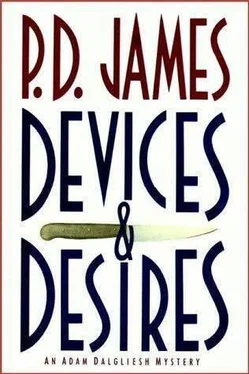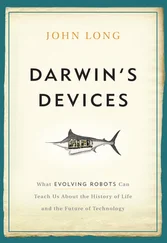'And why didn't you drive them to Norwich as arranged?'
'Because the car broke down while they were finishing the packing. I thought I'd explained that already. At about half-past six I went to get it out of the garage and drove it to the front door. It was all right then but when I finally got them into it at 7.15 and we were ready to go it wouldn't start. So I rang Mr Sparks at Lydsett Garage and arranged for him to take them in his taxi.'
'Without you?'
Before she could answer Oliphant got to his feet, walked over to a standard lamp close to his chair and, without a word, switched it on. The strong light flowed down on her. For a moment Rickards thought that she was about to protest. She half rose from the chair, then sat down again and went on as if nothing had happened.
'I felt bad about that. I would have been much happier to have seen them on the train, but Mr Sparks could only take the job if he could go straight on to Ipswich where he had to pick up a fare. But he promised he wouldn't leave them until he'd seen them into the carriage. And, of course, they're not children, they're perfectly capable of getting out at Liverpool Street. It's the terminus, after all; and their daughter was meeting them.'
Why, Rickards wondered, was she so defensive? She could hardly suppose herself a serious suspect. And yet, why not? He had known less likely murderers. He could see fear in the dozen small signs which no experienced policeman could miss; the tremble of the hands which she tried to control when his glance fell on them, the nervous tic at the corner of the eye, the inability to sit still one moment followed by an unnatural, controlled stillness the next, the note of strain in the voice, the way in which she was resolutely meeting his eyes with a look compounded of defiance and endurance. Taken singly each was a sign of natural stress; together they added up to something close to terror. He had resented Adam Dalgliesh's warning the previous night. It had been uncomfortably close to teaching him his job. But perhaps he had been right. Perhaps he was facing a woman who had suffered more aggressive interrogations than she could take. But he had his job to do.
He said: 'You phoned for the taxi straight away? You didn't try to find out what was wrong with the car?'
'There was no time to fuss about under the bonnet. I'm not a mechanic anyway. I've never been particularly good with a car. It was lucky that I found out in time that it wouldn't go, and even luckier that Mr Sparks could oblige. He came at once. Mr and Mrs Copley were getting very agitated. Their daughter was expecting them; all the arrangements had been made. It was important to catch the train.'
'Where was the car normally kept, Mrs Dennison?' 'I thought I told you that, Chief Inspector. In the garage.' 'Locked?'
'There's a padlock. Quite a small one. I don't suppose it's very secure if someone really wanted to break it, but no one has ever tried. It was locked when I went for the car.'
'Three-quarters of an hour before you needed to leave,' 'Yes. I don't understand what you're getting at. Is that significant?'
'I'm just curious, Mrs Dennison. Why so much time?'
'Have you ever had to load a car with the luggage required by two elderly people leaving for an indefinite stay? I had been helping Mrs Copley with the final part of her packing. I wasn't needed for a minute or so and it seemed a good opportunity to get the car out.'
'And while it stood there in front of the house, was it continually under your eye?'
'Of course not. I was busy checking that the Copleys had everything that they needed, going over the things I needed to do while they were away, parish business, a few telephone calls.'
'Where was this happening?'
'In Mr Copley's study. Mrs Copley was in her bedroom.'
'And the car was unattended in the drive?'
'Are you suggesting that someone sabotaged it?'
'Well, that would be a little fanciful, wouldn't it? What gave you that idea?'
'You did, Chief Inspector. It wouldn't otherwise have occurred to me. And I agree, it's fanciful.'
'And when, at 9.45, Mr Jago rang from the Local Hero to tell you that the Whistler's body had been found, what did you do then?'
'There was nothing I could do. There was no way of ' stopping the Copleys; they were over an hour into their journey. I rang their daughter at her London club and managed to catch her before she set out for Liverpool Street. She said that she'd made all her arrangements so that they might as well stay for a week since they were on their way. Actually, they're coming home tomorrow afternoon. Mrs Duncan-Smith has been called to help nurse a sick friend.'
Rickards said: 'One of my officers has seen Mr Sparks. He was anxious to reassure you that the Copleys were safely on their way. He rang you as soon as convenient for him but could get no reply. That was at about 9.15, about the same time as Mr Jago first tried to get through to you.'
'I must have been in the garden. It was a beautiful moonlit night and I was restless. I needed to get out of the house.'
'Even with the Whistler, as you thought, still at large?'
'Strangely enough, Chief Inspector, I've never been very frightened of the Whistler. The threat always seemed remote, a little unreal.'
'You went no further than the garden?'
She looked at him straight in the eyes. 'I went no further than the garden.'
'Yet you didn't hear the telephone?'
'It is a large garden.'
'But it was a quiet night, Mrs Dennison.'
She didn't reply.
He asked: 'And when did you come in from wandering alone in the dark?'
'I wouldn't describe a stroll around the garden as wandering alone after dark. I suppose I was out for about half an hour. I had been back about five minutes when Mr Jago rang.'
'And when did you hear about the Robarts murder, Mrs Dennison? Obviously it wasn't news to you when we met at Martyr's Cottage.'
'I thought you already knew that, Chief Inspector. Miss Mair telephoned me shortly after seven on Monday morning. She herself knew when her brother returned late on Sunday night after seeing the body but she didn't want to disturb me at midnight, particularly with such distressing news.'
Oliphant asked: 'And was it distressing news, madam? You hardly knew Miss Robarts. Why should it be so distressing?'
Mrs Dennison gave him a long look, then turned away. She said: 'If you really have to ask that question, Sergeant, are you sure you're in the right job?'
Rickards rose to go. She came with him to the front door. As they were leaving she turned to him and said with sudden urgency: 'Chief Inspector, I'm not stupid. All these questions about the shoes. Obviously you've found a print at the scene and you think it could have been made by the murderer. But surely Bumbles aren't uncommon. Anyone could have been wearing them. The fact that Toby Gledhill's pair are missing could be simply coincidence. They weren't necessarily taken with evil purpose. Anyone needing a pair of trainers could have stolen them.'
Oliphant looked at her. 'Oh, I don't think so, madam, do you? As you said yourself only half an hour ago, this is Larksoken, not London.' And he smiled his thick-lipped, self-satisfied smile.
Rickards wanted to see Lessingham at once but the press conference called for ten meant that the interview had to be postponed and, to complicate matters further, a telephone call to Larksoken Power Station revealed that Lessingham had taken a day's leave but had left a message saying he could be reached at his cottage outside Blakeney. Luckily he was at home and, without explanation, Oliphant made an appointment for midday.
They were less than five minutes late and it was the more frustrating, therefore, to find when they arrived at the low-built wood and brick cottage set back on the coastal road a mile to the north of the village that he wasn't at home. A note in pencil was tacked to the front door.
Читать дальше












